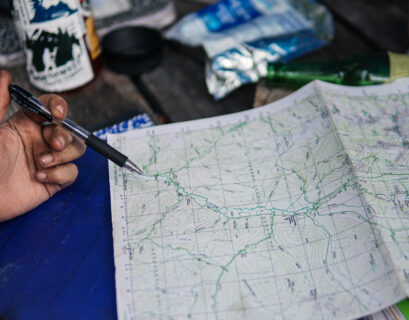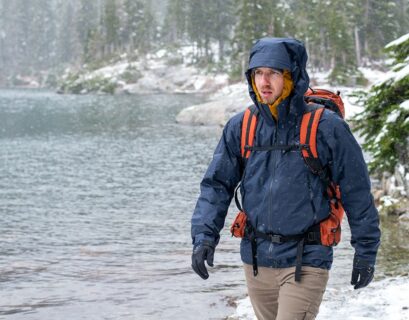The great outdoors offers a sanctuary for adventure, reflection, and connection with nature. As outdoor enthusiasts explore the diverse landscapes of mountains, forests, and deserts, a critical ethos guides their journey—the Leave No Trace (LNT) principle. This set of ethical guidelines is designed to minimize human impact on the environment, preserving the natural beauty and integrity of wilderness areas. In this article, we will delve into the core principles of Leave No Trace and explore why its adoption is crucial for the sustainability and protection of our planet’s wild spaces.
The Seven Leave No Trace Principles:
- Plan Ahead and Prepare:
- Importance: Adequate preparation reduces the likelihood of accidents and environmental impact. Proper planning ensures that visitors have the skills and knowledge to navigate the wilderness responsibly.
- Actions: Research the area, understand regulations, pack lightweight and essential gear, and be aware of the environmental conditions you might encounter.
- Travel and Camp on Durable Surfaces:
- Importance: Trampling on vegetation can have lasting effects on fragile ecosystems. Adhering to this principle helps prevent soil erosion, damage to plant life, and the disruption of wildlife habitats.
- Actions: Stick to established trails, campsites, and durable surfaces. Minimize impact by avoiding shortcuts or creating new paths.
- Dispose of Waste Properly:
- Importance: Improper waste disposal can contaminate water sources, harm wildlife, and mar the visual beauty of natural landscapes. Responsible waste management is essential for maintaining the health of ecosystems.
- Actions: Pack out all trash, including food scraps and biodegradable waste. Dispose of human waste in designated facilities or by following established guidelines for burying waste.
- Leave What You Find:
- Importance: The temptation to collect souvenirs or disturb natural features can have long-term consequences on ecosystems. Respecting the integrity of the environment ensures that future generations can experience it in its natural state.
- Actions: Do not pick plants, disturb wildlife, or alter natural features. Leave rocks, flowers, and artifacts untouched for others to enjoy.
- Minimize Campfire Impact:
- Importance: Campfires can scar landscapes, deplete wood resources, and pose fire hazards. By minimizing the impact of campfires, visitors contribute to the preservation of ecosystems and reduce the risk of wildfires.
- Actions: Use a camp stove for cooking instead of making open fires. If fires are allowed, use established fire rings and keep them small. Be mindful of fire regulations and conditions.
- Respect Wildlife:
- Importance: Interacting with wildlife disrupts natural behaviors and can lead to stress or harm. Respecting wildlife ensures the well-being of the animals and maintains the ecological balance of the area.
- Actions: Observe animals from a distance, avoid feeding them, and store food securely to prevent wildlife encounters. Give wildlife the space they need to thrive in their natural habitat.
- Be Considerate of Other Visitors:
- Importance: Sharing the outdoors with fellow enthusiasts requires consideration and respect. Thoughtful behavior ensures that everyone can enjoy the tranquility and beauty of nature without disturbance.
- Actions: Keep noise levels down, yield the trail to others, and be mindful of the visual impact of your presence. Follow established etiquette for sharing communal spaces.
Why Leave No Trace is Important:
- Preserving Wilderness Aesthetics:
- Visual Integrity: Leave No Trace practices contribute to maintaining the visual beauty of natural landscapes. Unspoiled vistas, undisturbed vegetation, and pristine water sources enhance the aesthetic appeal of wilderness areas.
- Protecting Fragile Ecosystems:
- Biodiversity: Minimal human impact helps protect the delicate balance of ecosystems. By respecting vegetation, minimizing soil disturbance, and avoiding habitat disruption, visitors contribute to the preservation of biodiversity.
- Ensuring Sustainable Recreation:
- Long-Term Enjoyment: Leave No Trace practices promote sustainable recreation by ensuring that outdoor areas remain viable for future generations. Responsible behavior today allows for the continued enjoyment of wild spaces tomorrow.
- Mitigating Climate Change Impact:
- Carbon Sequestration: Healthy ecosystems play a role in carbon sequestration. By minimizing human impact, Leave No Trace practices indirectly contribute to the mitigation of climate change by maintaining the functionality of natural systems.
- Cultural and Historical Preservation:
- Protecting Heritage: Leave No Trace principles extend to cultural and historical sites, preserving artifacts and structures for future generations. By leaving these sites undisturbed, visitors honor the historical significance of the area.
- Ensuring Water Quality:
- Pristine Water Sources: Proper waste disposal and responsible camping practices contribute to maintaining water quality. Clean water sources are crucial for wildlife, ecosystems, and the overall health of the environment.
- Promoting Ethical Outdoor Recreation:
- Educational Impact: Leave No Trace serves as an educational tool, fostering awareness and responsibility among outdoor enthusiasts. Understanding the impact of human actions encourages ethical behavior and a sense of stewardship.
Conclusion:
Leave No Trace is not just a set of guidelines; it is a commitment to ethical and responsible outdoor recreation. By adopting these principles, individuals contribute to the preservation of the environment, ensuring that the allure of nature remains untarnished for generations to come. The Leave No Trace ethic is a shared responsibility that empowers outdoor enthusiasts to enjoy the beauty of the wilderness while actively participating in its protection and conservation. As we explore the wonders of the great outdoors, let us leave no trace but footprints and take away nothing but memories, leaving the wilderness as we found it—unspoiled, vibrant, and inviting.









